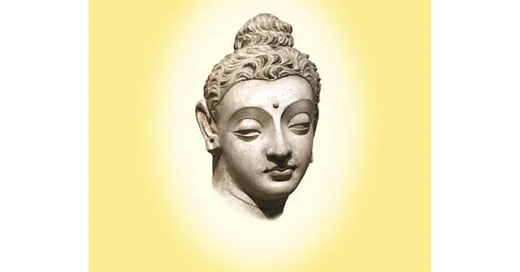In Greek Buddha, Christopher I. Beckwith offers a provocative and meticulously argued thesis that challenges long-held assumptions about the origins of Western philosophy. Beckwith contends that Pyrrho of Elis, a Greek philosopher who traveled with Alexander the Great to India, encountered and internalized early Buddhist teachings, which later formed the foundation of what we know as Pyrrhonism, a radical form of philosophical skepticism.
This bold claim rests on both philosophical and historical grounds. Beckwith traces parallels between Pyrrho’s teachings and early Buddhist ideas, particularly those found in pre-sectarian Buddhism, such as the rejection of dogmatic views, the emphasis on tranquility (ataraxia / upekkhā), and the suspension of judgment (epochē). He argues that these are not merely coincidental resonances but the result of direct cultural and philosophical exchange in the Hellenistic East, especially in regions like Gandhāra and Bactria where Indo-Greek interaction was particularly intense.
The book is strongest in its interdisciplinary approach. Beckwith draws from philology, ancient travel accounts, early Buddhist texts in Pali and Gāndhārī, and the fragments of Pyrrhonist doctrine preserved in later Greek writings. His linguistic analysis, particularly his treatment of the so-called “Three Marks” (tilakkhaṇa) and their echoes in Greek, is detailed and, at times, daring.
That said, from the point of view of writing style, the book doesn’t quite captivate. The narrative flow is uneven, and key concepts feel scattered throughout rather than developing in a clear, cumulative direction. Readers may find themselves flipping back and forth in search of threads that get picked up only chapters later. In short: the ideas are fascinating, but the delivery doesn’t always help them shine.
Keep reading with a 7-day free trial
Subscribe to The Gentle Law to keep reading this post and get 7 days of free access to the full post archives.





